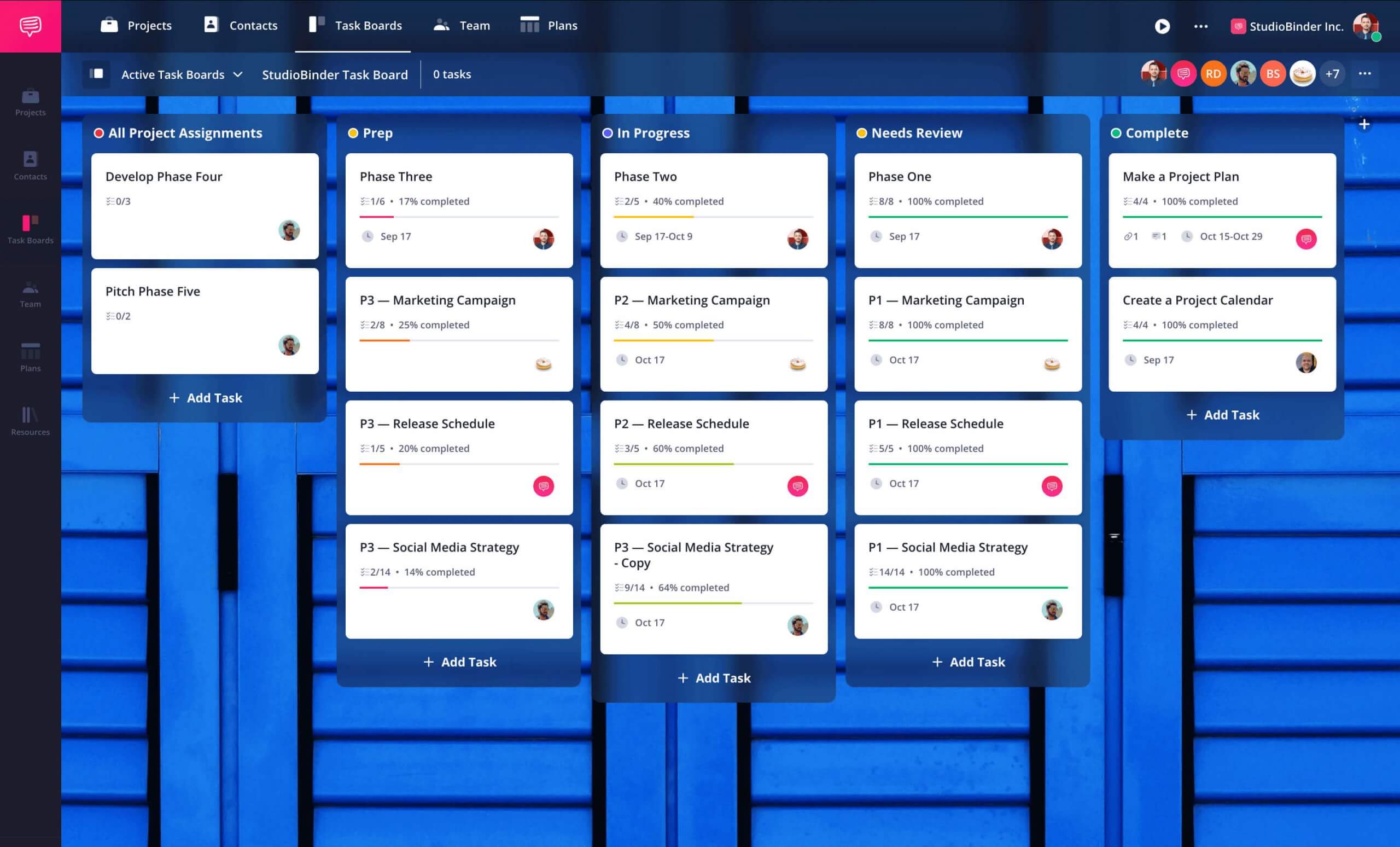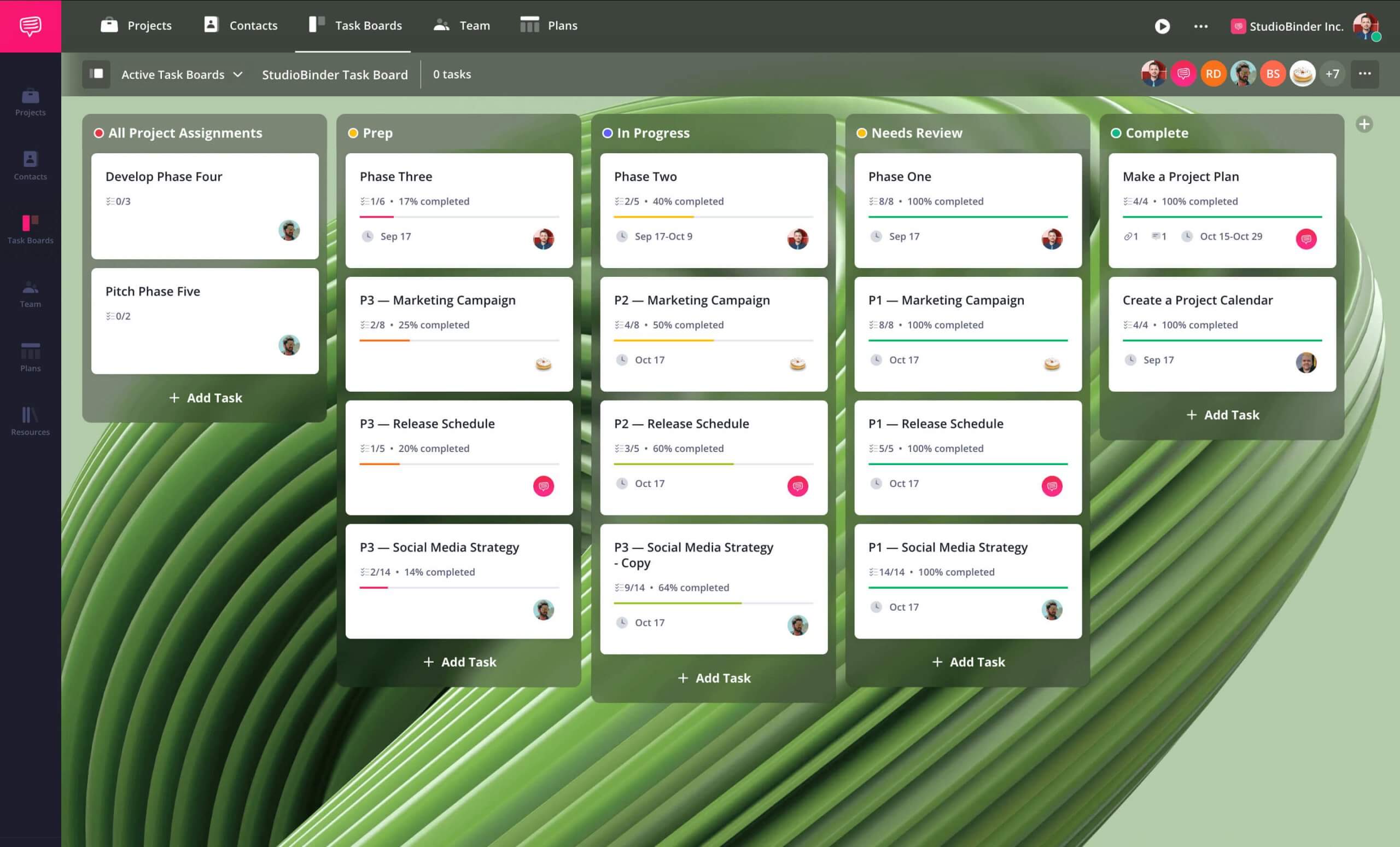We’ve all heard the saying “Work smarter, not harder.” One of the best ways to achieve this goal is through effective task management. Task management aims to streamline and organize all the tasks that need to be completed by an individual or a team.
It involves prioritizing, planning, scheduling, and tracking tasks to achieve specific goals. This guide will look into the importance of task management and a few ways to improve your own task management skills.
What is Task Management Used For?
First, let’s define task management
While it's a common and necessary business practice, task management is important in nearly every industry. Let’s define task management as it applies to any project or venture.
TASK MANAGEMENT DEFINITION
What is task management?
Task management is the process of effectively tracking, managing, and executing the lifecycle of a task from planning to completion. This involves prioritizing tasks, managing resources, setting clear goals, and ensuring team collaboration.
Task management is different from project management. While project management focuses on completing a specific project, task management is more focused on individual tasks that make up the overall project.
What is Task Management Used For?
- Enhanced productivity
- Informed decision-making
- Streamlined workflows
- Goal alignment
Benefits of Task Management Software
Benefits of Task Management
Tasks are the individual steps that lead toward the completion of a successful project. The efficiency and effectiveness of how these tasks are accomplished depend a lot on the quality of task management. Because of this, great task management can be an absolute game changer.
Efficient workflow
Task management focuses on organizing tasks efficiently and effectively, thus streamlining the entire workflow. By setting clear goals, task management helps individuals and teams stay focused on what's important, working toward a clear direction.
This clarity leads to improved productivity as it reduces distractions and avoids wasting time on non-prioritized tasks. Task management is a preventive measure that identifies potential issues and bottlenecks early to avoid unforeseen mishaps.
Better prioritization
With the help of task management, individuals and teams can prioritize tasks based on their importance and urgency. This ensures that important tasks are completed first, reducing the risk of missing deadlines or forgetting critical tasks.
Improved communication and collaboration
Task management promotes effective communication and collaboration among team members by providing a clear overview of tasks, responsibilities, and deadlines.
This minimizes misunderstandings and ensures everyone is on the same page. Task management tools provide visibility into task progress, deadlines, and resource allocation, promoting transparency across teams.
Meeting deadlines consistently
By establishing realistic deadlines and actively tracking task progress, effective task management empowers individuals and teams to not only meet their deadlines consistently but also enhances accountability and fosters a culture of productivity and collaboration.
Related Posts
Task Management Meaning and Guide
Key Steps in Task Management
Task management involves a few steps that can help any team’s workflow. Some of these foundational task management steps include:
Prioritization
The first step to effective task management is prioritizing tasks based on their urgency and importance. This helps individuals focus on the most important tasks, avoiding unnecessary stress and distractions.
Planning
Once tasks have been prioritized, it's important to create an actionable plan that outlines the necessary steps to complete each task. This plan should include deadlines, resources needed, and any dependencies or constraints.
Scheduling
Scheduling involves setting specific dates and times for completing each task. It's important to be realistic in scheduling to avoid overloading oneself or the team.
Tracking
Regularly monitoring task progress and tracking any changes or deviations from the original plan is crucial in effective task management. This enables individuals and teams to make necessary adjustments to keep tasks on track.
Collaboration
Collaboration among team members is key in completing tasks successfully. Effective communication, delegating tasks, and providing support when needed can help ensure smooth collaboration.
Related Posts
How to Use Task Management Software
Task Management Methods and Tools
There are numerous methods and softwares that have been developed for managing tasks. While many argue what's best, more efficient, or more practical, it's important to remember that any task management is better than no task management.
Online Tools
Platforms like Airtable, Asana, Trello, and monday.com offer comprehensive solutions for task board management.
StudioBinder's task management software is a popular tool for managing tasks in the film and video production industry allowing you to manage tasks across multiple projects. Check out an example of StudioBinder’s task management down below.

Task Board Example • Made in StudioBinder
Checklists
A simple and effective way to track tasks and ensure nothing is missed is through checklists. They provide a visual representation of what needs to be done, making it easy to prioritize and stay organized.
Kanban boards
Kanban boards are widely used in project management but can also be helpful in task management. They use cards or sticky notes to represent tasks that can be moved across different stages of completion, from "To-do" to "In Progress" to "Completed."

Kanban board example
Spreadsheets
Spreadsheets, such as Microsoft Excel, can also be useful in tracking and managing tasks. They allow for easy organization of tasks, deadlines, and resources.
Related Posts
Up Next
How Do Task Boards Work?
Task management is most easily and effectively executed with the use of a task board. Be sure to check out how task boards work specifically in our next post to further grasp the process overall.
Up Next: Task Board 101 →
Project management for video creatives. Tasks, file sharing, calendars and more.
Manage video production timelines, tasks, storyboards, shot lists, breakdowns, call sheets. Made for video creatives, new media and film.
